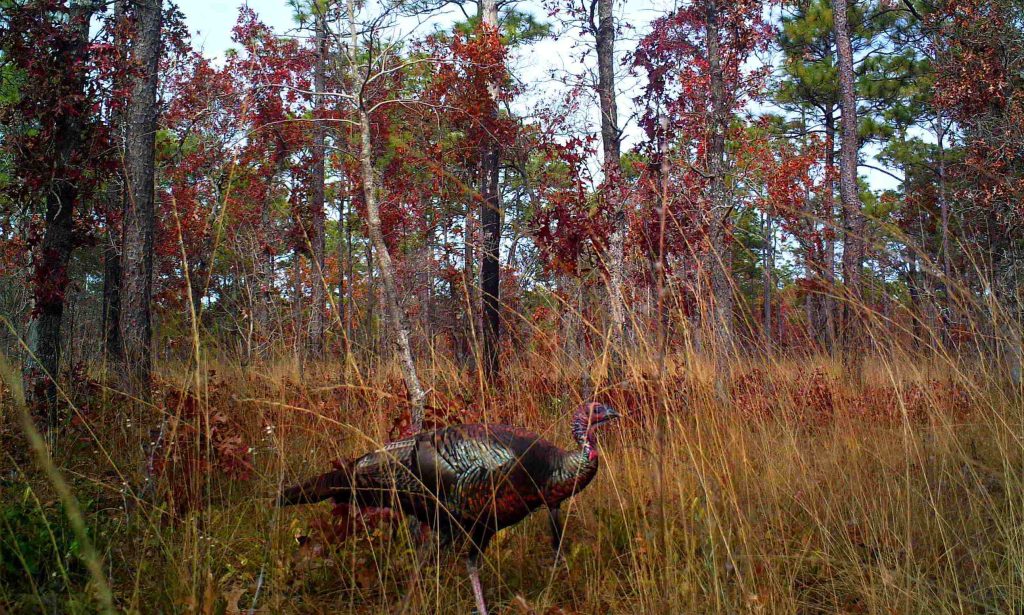Assessing the Climate Vulnerability of Wild Turkeys Across the Southeastern U.S.

Project Information
Principal Investigator: Krishna Pacifici, North Carolina State University
Proposed Project Completion: July 2024
Implements Science Plan Theme: Impacts
Co-Investigators:
Christopher Moorman, North Carolina State University
Bret Collier, Louisiana State University
Michael Chamberlain, University of Georgia
Cooperators:
Adam Terando, USGS Southeast Climate Adaptation Science Center
Overview
Local and broad-scale regional changes in precipitation and temperature associated with a changing climate can lead to changes in food and cover for wildlife, including species that are hunted. If wildlife species do not adapt to these weather and climate changes, the timing of their reproductive activities may become mismatched with the timing that maximizes the amount of food available to young, leading to failed reproduction and ultimately to population declines. Wild turkey (Meleagris gallopavo) is a culturally and economically important game species that has shown dramatic declines in abundance through most portions of the southeastern U.S. A possible explanation for these declines is that the timing of nesting has shifted to earlier in the year while at the same time hunting seasons have remained static. Wild turkeys are the only gamebird in the contiguous United States that are hunted during the reproductive season, so premature harvest of mature adult male turkeys may disrupt reproductive behaviors and reduce output of young.
Researchers are using >10 years of reproduction data for wild turkeys from six states to explore the combined effects of climate and hunter harvest on wild turkeys to help guide localized harvest regimes (e.g., timing of the hunting season) across the region. They will assess the relative importance of short-term weather events, longer-term weather shifts, and extreme weather events like hurricanes on the variation in timing of nest initiation and the survival of nests across the enter region and for over a decade.
In the face of ongoing climate change and the projected future weather extremes for the Southeast, the results will help managers make projections about the overall influence of climate on reproduction in wild turkeys, directing adjustment of the timing of hunter harvest and bag limits if needed.
Relevant Web Posts:
- SE CASC Study Reveals Turkey Nesting May Not Shift Under Climate Change
- Study Overturns Conventional Wisdom About Wild Turkey Nesting Survival
